About the Zheng Chenggong Memorial Museum
The Zheng Chenggong Memorial Museum consists of two main sections: a section on his birthplace and a rest area; each section featuring its own exhibited items. Information per zone can be found below.
Zheng Chenggong Birthplace Exhibition Section
The birthplace exhibition section has several rooms, each with its own displays, allowing visitors to gain insight into the character of Zheng Chenggong. The exhibition also recreates the living environment of the time, providing a glimpse into his life.
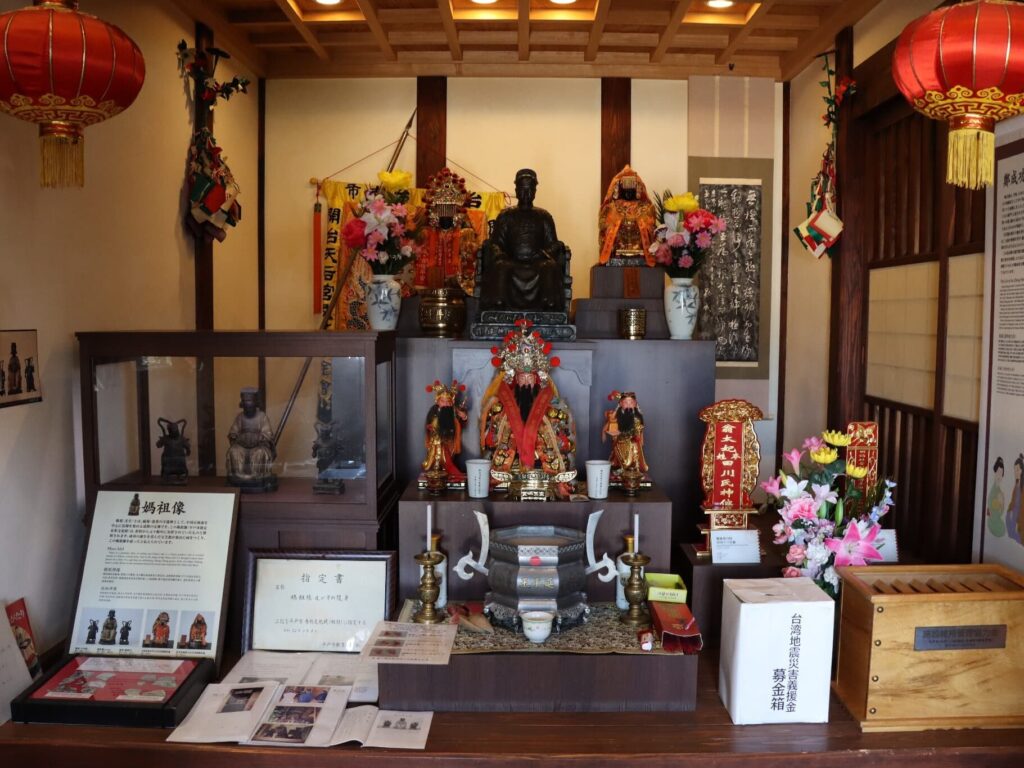
Mazu Statue Room
Zheng Chenggong and the Goddess of the Sea
This part exhibits the statue of the goddess Mazu, an intangible cultural property of Hirado City, and some other religious statues presented to the museum by several shrines in Taiwan. In addition, at the back of the room is a replica of a calligraphy piece by Zheng Chenggong which was presented by the affiliate facility in Taiwan, and a portrait of Zheng Chenggong.(a reproduction).
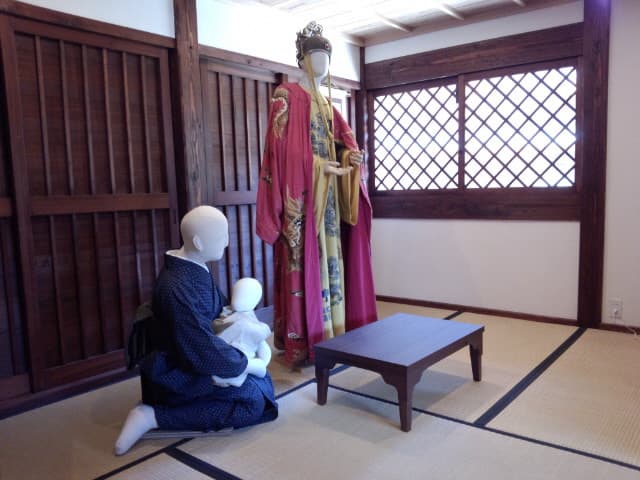
Japanese Room
Zheng Chenggong – His house and the living environment of that time.
The exhibition shows a recreation of the family life of the Zheng household,depicting how they lived together during that time.
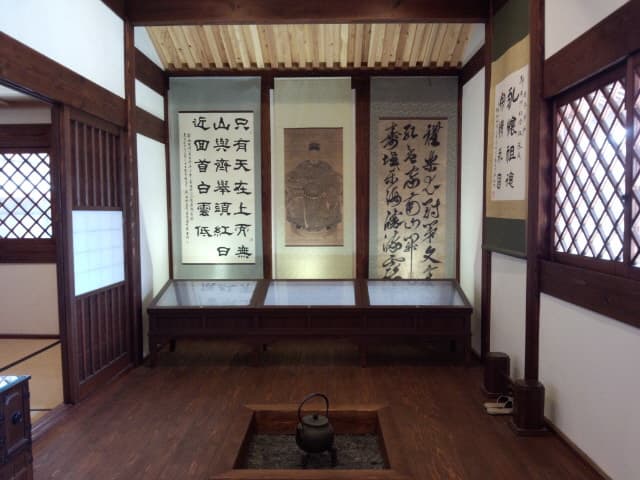
Irori Hearth Room
The achievements of Zheng Zhilong, the father of Zheng Chenggong
Zhilong, Zheng Chenggong’s father, was a trading merchant. This room exhibits some materials which exemplify his achievements as a successful merchant.

Servants’ Room
Historical Background of the Battles of Zheng Chenggong
Zheng Chenggong fought against the Qing dynasty, strived to restore the Ming dynasty and also liberated Taiwan which had been under the rule of the Dutch Empire. This area features the materials which exhibits the military related aspects of Zheng Chenggong.
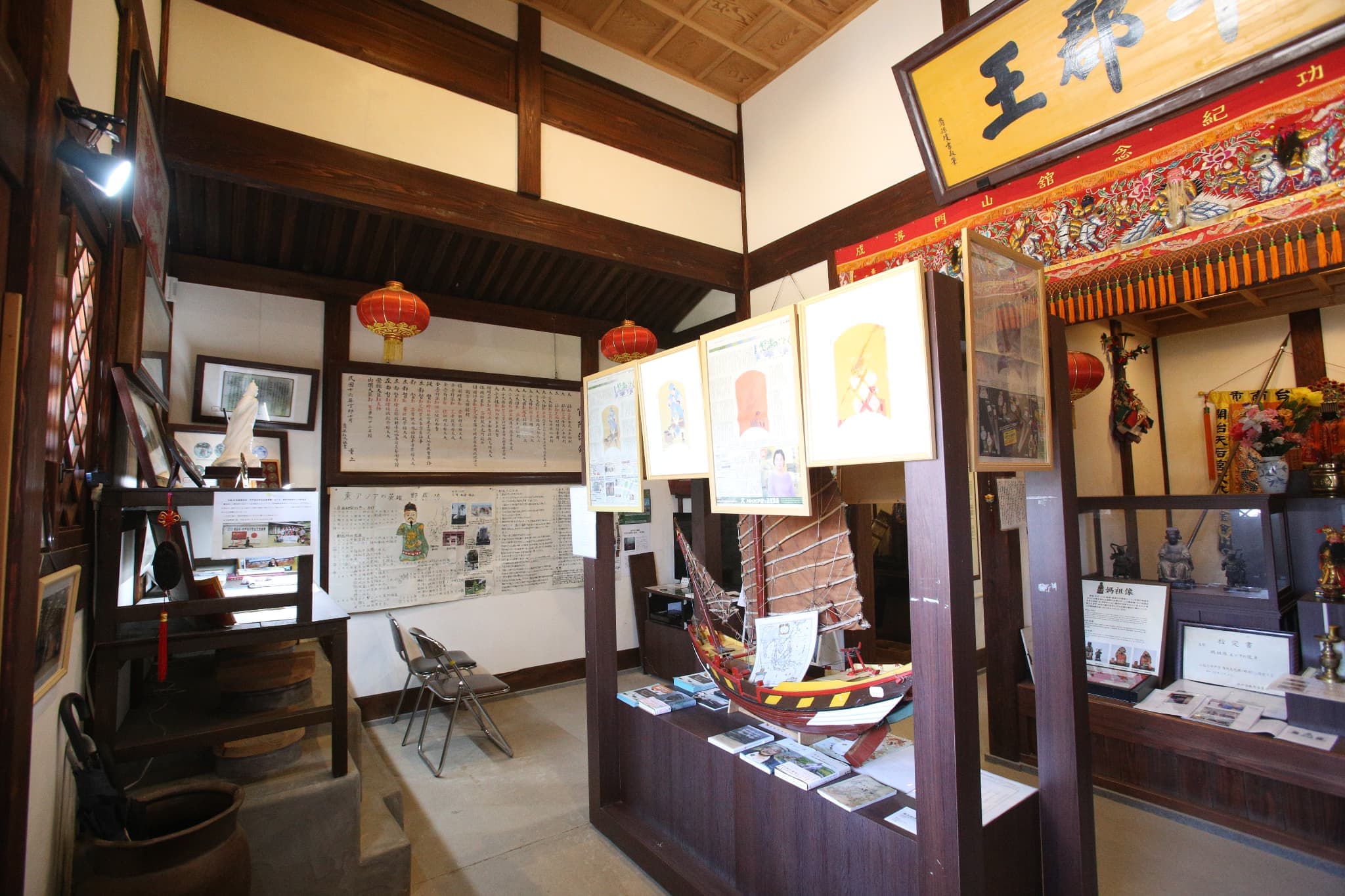
Entrance
Entrance
This is the entrance to the exhibition spaces.
There is a model of a ship,which is said to have been used by Zheng Zhilong for trading.
Rest Area
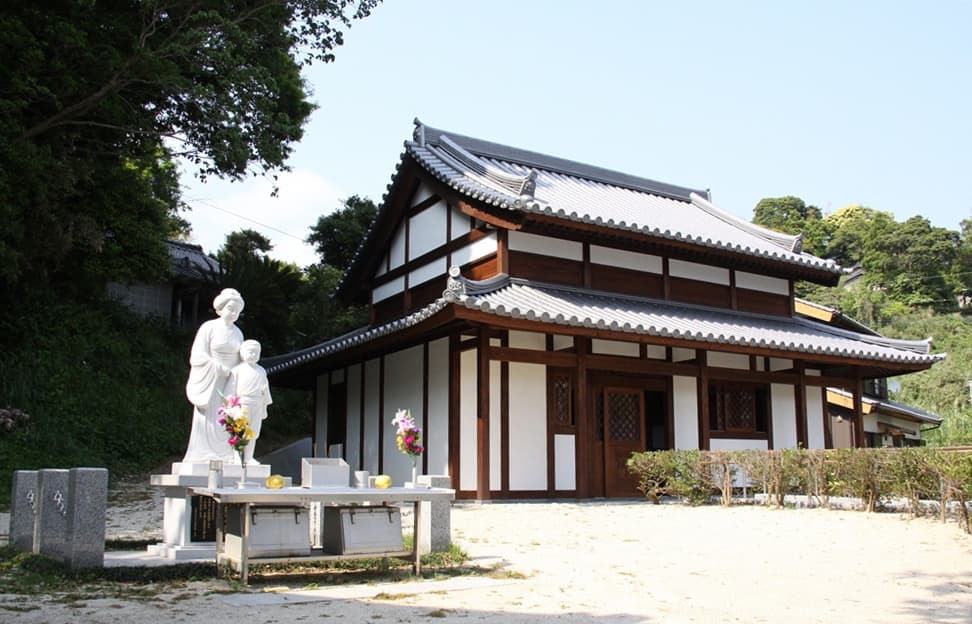
The Rest Area features a display showing the chronology of Zheng Chenggong’s life, information on the on-site facilities and events related to Zheng Chenggong.
| Zheng Chenggong’s Birthplace | Structure: Wooden building with Tiled Roof Building Area: 73.31㎡ |
|---|---|
| Rest Station / Bathroom | Structure: Wooden building with Tiled Roof Building Area: 74.22㎡ |
| Opening Hours | 8:30AM – 5:00PM |
| Admission Fee | Free *There is a donation box in the museum to support the maintenance and management of the facility. We kindly ask for your cooperation. |
| Closing Day | Wednesdays / Dec. 31 thru Jan. 1 |
Other things located Outside of the Museum Building
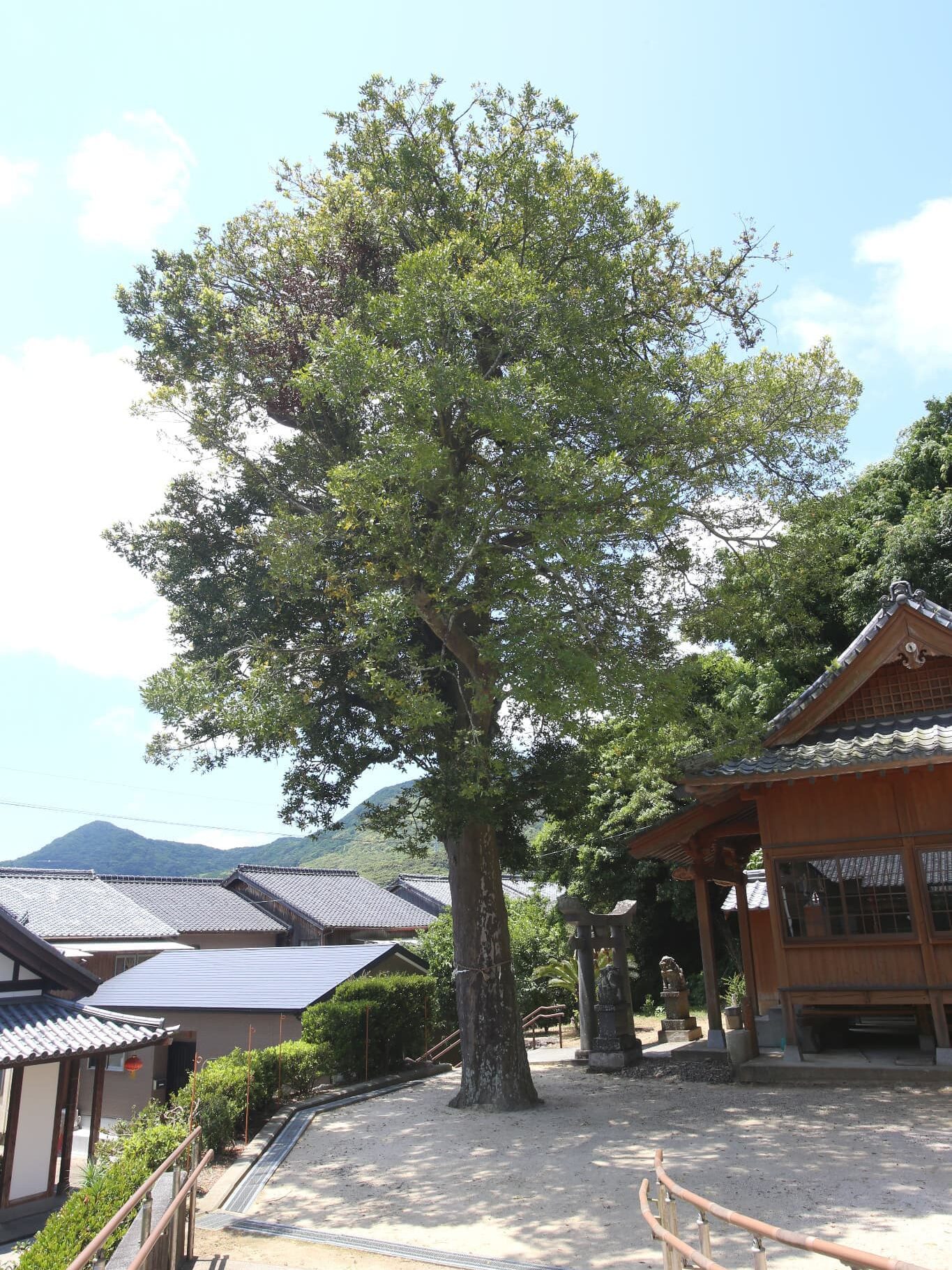
Asian Bayberry Tree
Near the museum, there is an Asian Bayberry tree, which is said to have been planted by a young Zheng Chenggong.
The Asian Bayberry is an evergreen tree of the Fagaceae family, known for being planted as a sacred tree at many shrines around Japan. It is considered a tree that invokes navigation safety and protects against evil due to the meanings associated with the tree’s name in Japanese. Also, as its leaves are hard to be torn, it is considered a tree of good fortune and believed to bring good luck in marriage and prosperity in business.
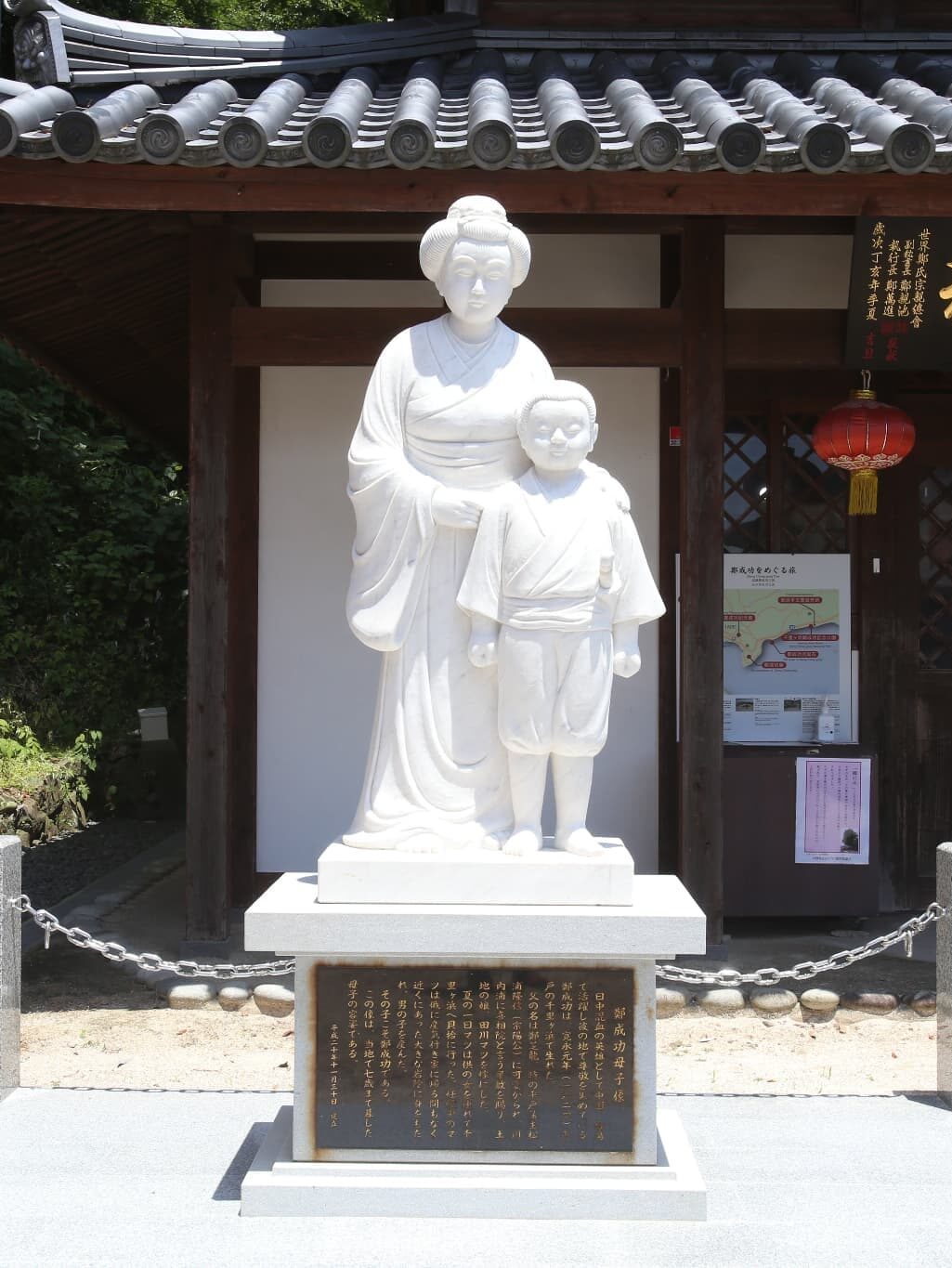
The Statue of Zheng Chenggong and His Mother
As there was nothing dedicated to the memory of Tagawa, the mother of Zheng Chenggong who made a great contribution to the early education of her son, a local volunteer group called for donations and constructed this statue on November 30th, 2008.
The statue was designed by Zheng Wan Jin, the 11th grandson of Zheng Chenggong.
History of the Zheng Chenggong Memorial Museum
| 2010 |
|
|---|---|
| 2011 |
|
| 2012 |
|
| 2013 |
|
| 2016 |
|
| 2024 |
|
Main Exhibits
Statue of Mazu (Tangible Cultural Property of Hirado City)

Mazu is a Taoist goddess of navigation safety and prosperity of the fishing industry, and is worshipped mainly in the coastal area of China. Deductible from its shape, this statue is considered to have been originally enshrined on a ship and is considered to be part of a set of statues along with two others. Zheng Zhilong, Chenggong’s father, is said to have enshrined this statue in a shrine he built himself. As it had been severely damaged, it was repaired at the national treasure restoration laboratory at Kyoto Art Institute in December of 1990.
The Statue of Mazu
Carved Out from a Single Camphor Trunk: Size 28cm
Guardian (Senrigan)
Senrigan is considered to be one of the subordinates of Mazu and makes a pair with Junpuji. Senrigan is said to be the god who serves the supreme sky deity and sees everything from the sky to the ground. Carved Out from a Single Camphor Trunk: Size 19cm
Guardian (Junpuji)
Junpuji is considered to be one of the subordinates of Mazu and makes a pair with Senrigan. Junpuji is said to be the god who hears everything from the sky to the ground.
Carved Out from a Single Camphor Trunk: Size 19cm
The Statue of Mazu Presented by Luermen Matsu Temple of Tainan City and Lukang Matsu Temple of Changhua County
In April 1997, when the 8th Taiwan Friendship Trip Group visited Luermen Matsu Temple in Tainan City and Mazu Temple in Lukang, Changhua County, the local citizens of each place presented a statue of Mazu to the group as a gesture to further promote friendship.
A statue of Mazu, which was originally enshrined in the flagship captained by Zheng Chenggong, is today enshrined at Luermen Matsu Temple. Its soul was divided and put into the statue presented to the Friendship Trip Group in 1997.

The Statue of Mazu Presented by Luermen Matsu Temple of Tainan City
Size: About 64cm
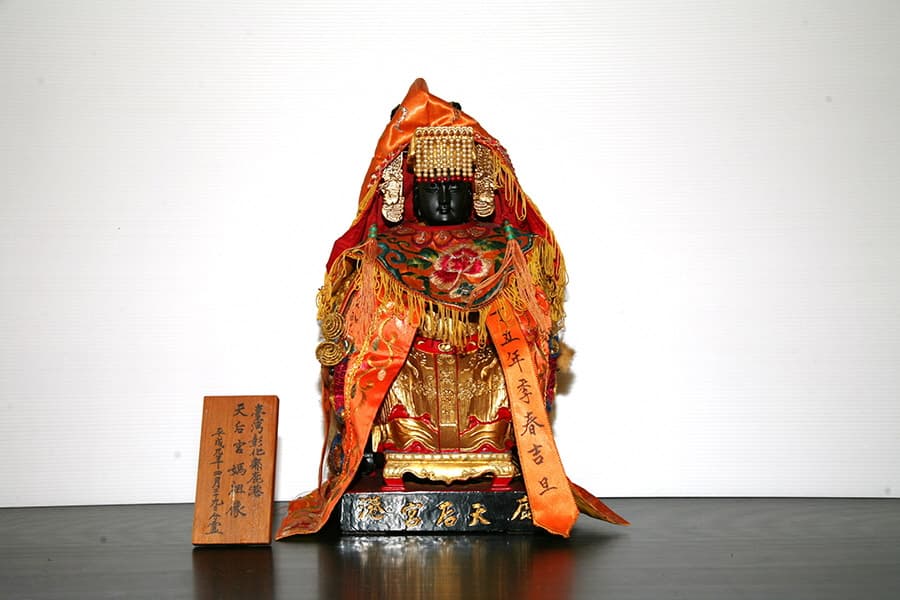
The Statue of Mazu Presented by Lukang Matsu Temple of Changhua County
Size: About 47cm
Calligraphy by Zheng Chenggong (Replica)
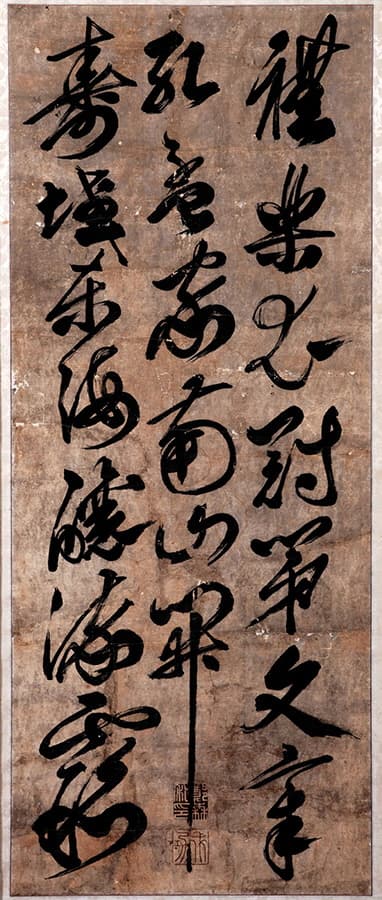
This was presented to Kaizan Shrine (Tainan City, Taiwan) by the Matsuura Family of Hirado. The original is housed at the Zheng Chenggong Koxinga Museum in Tainan City. Year: 1647 – 1662
Portrait of Zheng Chenggong (Replica)
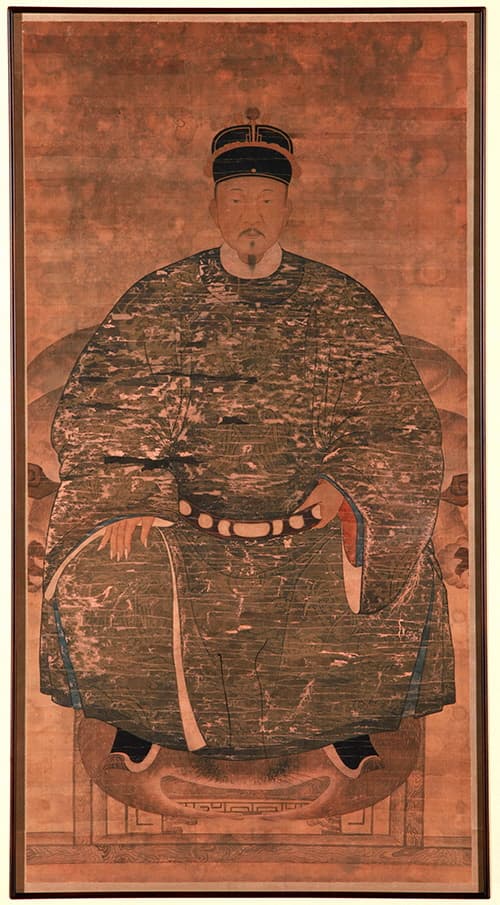
There are several stories regarding the appearance of Zheng Chenggong. According to a document preserved in the Netherlands, he was of medium height, had light complexion and a chiseled face with sharp eyes and unkempt hair.
Year: 1647 – 1662




